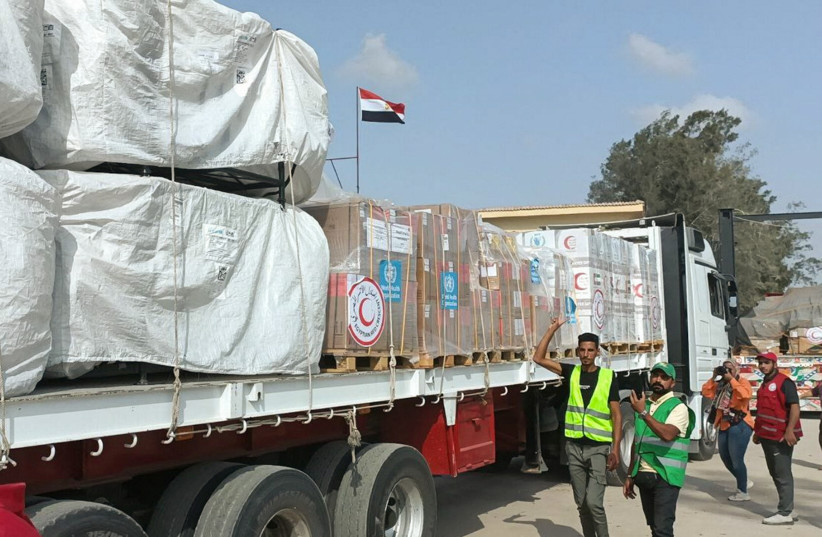Jordan's King Abdullah on Thursday urged UN aid officials and international NGOs to pile pressure on Israel to allow more aid into the beleaguered Gaza enclave where the humanitarian situation is worsening, officials and aid workers said.
They said the monarch told an emergency meeting in Amman of UN officials, heads of Western non-governmental organizations and representatives of Arab donors it was unacceptable that Israel continued to hold back sufficient aid flows into the densely populated enclave, home to 2.3 million people.
"The monarch urged the international aid community to do their bit and save Gazans who have endured a brutal war that has turned their land into an unlivable place," said one delegate who requested anonymity since deliberations were taking place confidentially as requested by the royal palace organizers.
The palace was not immediately available for comment.
Israel agreed to allow a trickle of aid into the enclave last week after it reached a truce with Hamas to trade hostages, a move that aid workers say eased a siege imposed for weeks during the fighting where food, fuel and goods were not allowed into the enclave.

Start of Israel-Hamas war
Israel began a bombing Gaza in response to the Oct. 7 massacre in southern Israel by Hamas terrorists who killed some 1,200 people and took more than 200 hostage.
Gaza health authorities deemed reliable by the United Nations say more than 15,000 people have been confirmed killed in Israel's attack, about 40% of them children, with many more feared dead and lost under rubble.
UN aid chief Martin Griffiths and senior UNRWA officials attending the conference told delegates it was crucial Israel reopens the Kerem Shalom border crossing that before the war handled more than 60% of the truckloads going into Gaza.
"This is what will make a real difference" said the head of a leading Western NGO, who was skeptical that Israel would agree to the measure before it ends its campaign to root out Hamas.
Currently Israel allows aid only through the Rafah crossing on the Egyptian border, where bottlenecks and capacity limitations mean it cannot handle more than 200 trucks a day.
"Before the war Gaza used to receive 500 trucks every day. We have never come close to that figure since Oct 7," said UNRWA spokesperson Juliette Touma, the UN aid agency providing aid to Palestinians.
Trucks carrying aid through Rafah have to first go through Israeli inspections at the Nitzana crossing, to ensure that only limited supplies of fuel are allowed and prevent what they term dual usage goods from entering.
Israel's control of the amounts and type of goods entering Gaza has curtailed the aid effort, and its acceptance of only limited supplies of fuel was hampering the health system's recovery, according to health and aid workers.
NGOs and UN officials also heard appeals from the monarch to accelerate delivery of aid to the northern part of Gaza, where Israel has sought to push its entire inhabitants further south but where over 700,000 people remain, a delegate said.
